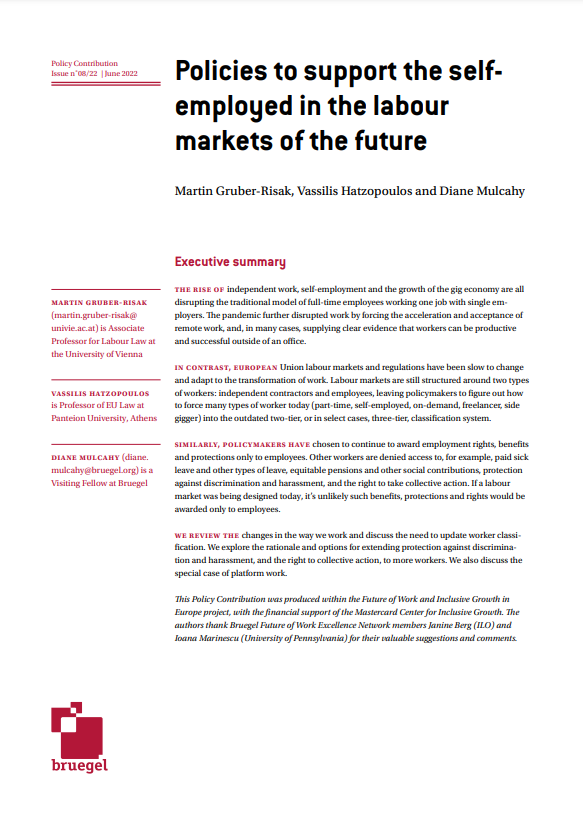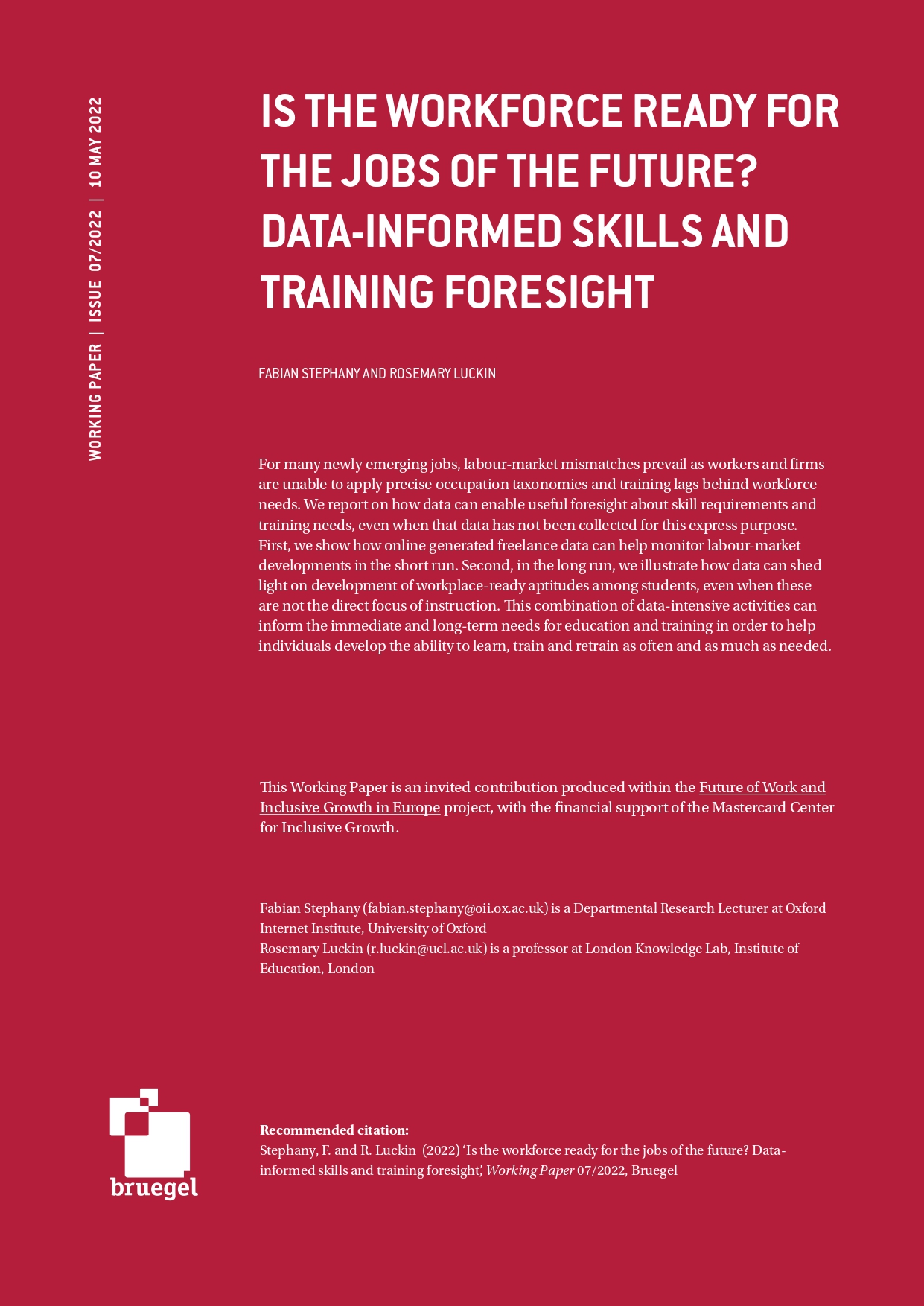Past Event
The work of the future: How are new jobs created and what are the implications for labour markets?
Join us for a presentation of 'New Frontiers: The Origins and Content of New Work, 1940 — 2018' by David Autor (MIT and NBER) and the findings on the source of 'new work' followed by a discussion with an invited panel of academics and policy makers.
video and audio recordings
At this event, we hosted a presentation of the paper ‘New Frontiers: The Origins and Content of New Work, 1940 — 2018’ by David Autor (MIT and NBER) and the findings on the source of ‘new work’, followed by a discussion with an invited panel of academics and policymakers. The paper is co-authored with Anna Salomons and Bryan Seegmiller.
Research on the impact of new technologies on work has illustrated that on the one hand machines can displace workers from performing some job tasks reducing in this way labour demand, but on the other hand they can also make workers more efficient in their tasks raising labour demand. A crucial missing link from this analysis is that job tasks should not be considered as fixed as they also evolve over time. Technology plays a major role in this evolution by creating new forms of work. The paper studies the creation of new job tasks and provides evidence on the origins and content of new work over the last 80 years.
At this event we discussed: What lessons can we learn from this research for the future of work? How important is education and job characteristics for the creation of new jobs tasks? Are new forms of work sufficient to counterbalance the potential displacement effects of technological advancements? What are the implications for the future direction of labour market policy?
This event was produced within the project “Future of Work and Inclusive Growth in Europe“, with the support of the Mastercard Center for Inclusive Growth.
Schedule
15:00-15:30
Presentation
David Autor, Ford Professor, Department of Economics, Massachusetts Institute of Technology
15:30-16:00
Conversation
Chair: Georgios Petropoulos, Non-resident Fellow
David Autor, Ford Professor, Department of Economics, Massachusetts Institute of Technology
Maarten Goos, Instituut Gak Endowed Professor, Utrecht University
Barbara Kauffmann, Director for Employment and Social Governance, DG Employment, Social Affairs and Inclusion, European Commission
16:00-16:30
Q&A
Speakers

David Autor
Ford Professor, Department of Economics, Massachusetts Institute of Technology

Maarten Goos
Instituut Gak Endowed Professor, Utrecht University

Barbara Kauffmann
Director for Employment and Social Governance, DG Employment, Social Affairs and Inclusion, European Commission

Georgios Petropoulos
Non-resident Fellow
Location & Contact
Katja Knezevic
[email protected]




